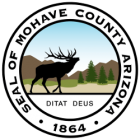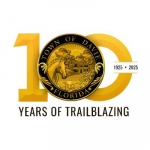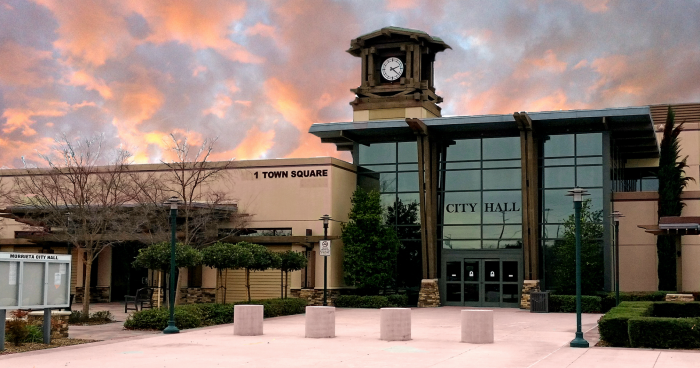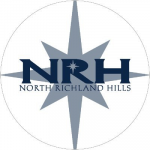Gain A Bird's Eye View Of The World With Government Survey Jobs

The World of Government Survey Jobs
Not to be confused with the surveying done by the Census Bureau, land surveying forms the heart of urban planning, environmental conservation, and national security. Government surveyors are the ones who climb mountains, wade through swamps, and navigate dense urban jungles – all in the name of accurate measurement and mapping.

But don’t be fooled; this isn’t just about trudging through wilderness with old-fashioned equipment. Modern government surveyors are as likely to be piloting drones or analyzing satellite data as they are to be pounding stakes into the ground.
Imagine starting your day by calibrating a high-precision GPS unit, then heading out to review and map the erosion of a coastline that could affect thousands of homes. Or picture yourself using cutting-edge LiDAR technology to create 3D models of a city, helping urban planners design more efficient and sustainable communities. These are just glimpses of what a career in government surveying can offer.
The Impact of Survey Work on Communities
When you think of community heroes, surveyors might not be the first profession that comes to mind. Yet, the work of government surveyors touches nearly every aspect of our daily lives, often in ways we don’t even realize. Let’s peel back the layers and explore how these precision professionals make a tangible difference in our communities.
Safeguarding Lives and Property
Did you know that accurate flood mapping can mean the difference between life and death? Government surveyors play a crucial role in creating and updating flood maps. These aren’t just lines on paper – they’re vital tools that:
- Help communities prepare for potential disasters
- Guide emergency response plans
- Inform insurance rates and building codes
By precisely measuring land elevations and water flow patterns, surveyors provide the data needed to protect lives and property from devastating floods. When was the last time you checked your area’s flood map? It might just save your life one day.
Shaping Livable Cities
Ever wondered how cities decide where to place new parks, schools, or transportation hubs? Government surveyors are often the unsung heroes behind urban planning decisions. Their work:
- Determines land use and zoning regulations
- Identifies suitable locations for public facilities
- Helps plan efficient transportation routes
Chances are, a government surveyor’s data played a role in making these amenities possible.
Resolving Boundary Disputes
“Good fences make good neighbors,” as the saying goes. But what happens when those fences are in the wrong place? Government surveyors are often called upon to settle boundary disputes, ensuring that:
- Property lines are accurately defined
- Land ownership is clearly established
- Conflicts between neighbors are resolved fairly
Their precise measurements can prevent costly legal battles and maintain community harmony. Have you ever had a fence dispute with a neighbor? A government surveyor might be the peacemaker you need.
Protecting Natural Resources
In an era of climate change and environmental concerns, the role of government surveyors in conservation efforts is more critical than ever. Their work contributes to:
- Mapping and monitoring protected habitats
- Tracking changes in coastlines and forests
- Planning sustainable resource management
From helping track endangered species to measuring glacial retreat, surveyors provide the data needed to make informed environmental decisions. How might your local ecosystem benefit from this precise monitoring?
Supporting Infrastructure Development
Roads, bridges, water systems – the infrastructure we rely on daily often begins with a surveyor’s measurements. Government surveyors:
- Determine optimal routes for highways and pipelines
- Ensure buildings and bridges are constructed on stable ground
- Help plan efficient water management systems
That smooth new highway or reliable clean water supply? Thank a surveyor for laying the groundwork.
Preserving History and Culture
Surprisingly, government surveyors also play a role in preserving our cultural heritage. They:
- Map and document historical sites and artifacts
- Provide data for archaeological excavations
- Help in the restoration of historical buildings and monuments
Their work may often go unnoticed, but its effects are felt every day in communities across the nation.
Technology in Modern Surveying

Gone are the days when surveyors relied solely on chains and transits. Today’s government surveyors are at the forefront of technological innovation, wielding an impressive array of high-tech tools that would make any gadget enthusiast green with envy. Let’s look into the exciting world of modern surveying technology and how it’s revolutionizing the field.
LiDAR: Illuminating the World in 3D
Imagine being able to create a highly detailed 3D map of an entire city in a matter of hours. That’s the power of LiDAR (Light Detection and Ranging) technology.
- How it works: LiDAR uses laser pulses to measure distances and create point clouds.
- Applications: From mapping flood plains to planning urban developments, LiDAR is changing the game.
- Accuracy: It can detect differences in elevation as small as a few centimeters.
Did you know that LiDAR technology recently uncovered hidden Mayan ruins in the jungles of Guatemala? Just think of the potential applications in your own community!
Drones: The Surveyor’s Eye in the Sky
Unmanned Aerial Vehicles (UAVs) or drones have become indispensable tools for modern surveyors. They offer:
- Efficiency: Cover large areas quickly and access hard-to-reach locations.
- Cost-effectiveness: Reduce the need for ground crews in many situations.
- Versatility: Equipped with cameras and sensors for various data collection needs.
Drones make it possible, providing a bird’s-eye view that was once the domain of expensive aerial surveys.
GPS and GNSS: Precision at Your Fingertips
Global Positioning System (GPS) and Global Navigation Satellite System (GNSS) technology have revolutionized surveying:
- Accuracy: Achieve centimeter-level precision in positioning.
- Speed: Collect data points rapidly and efficiently.
- Integration: Combine with other technologies for comprehensive surveys.
Remember when you had to unfold a giant paper map to navigate? GPS has come a long way since then, and surveyors are using its most advanced forms to map our world with incredible precision.
3D Laser Scanning: Capturing Reality in Detail
3D laser scanning technology allows surveyors to create highly detailed models of buildings, landscapes, and infrastructure:
- Speed: Capture millions of data points in minutes.
- Detail: Create accurate 3D models for analysis and planning.
- Versatility: Useful for everything from historic preservation to crime scene investigation.
Imagine being able to virtually walk through a building that hasn’t been constructed yet, or preserve the exact dimensions of a historic structure for future generations. That’s the power of 3D laser scanning.
Mobile Mapping Systems: Surveying on the Move
Mounted on vehicles, mobile mapping systems combine various sensors to collect data while in motion:
- Efficiency: Survey long stretches of road or rail quickly.
- Comprehensive: Collect multiple data types simultaneously.
- Safety: Reduce the need for surveyors to work in dangerous roadside conditions.
Think about the last time you used a street view feature on a digital map. Mobile mapping systems take this concept to the next level, providing detailed data for infrastructure planning and management.
GIS and Big Data: Making Sense of It All
Geographic Information Systems (GIS) and big data analytics are transforming how survey data is processed and utilized:
- Integration: Combine data from various sources for comprehensive analysis.
- Visualization: Create intuitive maps and models for decision-makers.
- Predictive Analysis: Use historical data to forecast future trends and needs.
From virtual reality simulations of proposed developments to real-time monitoring of environmental changes, the future of surveying is limited only by our imagination.
How to Land a Government Survey Job

So, you’re intrigued by the world of government surveying and ready to take the plunge into this rewarding career. But where do you start? Let’s map out your path to landing that coveted government survey job.
Education: Building Your Foundation
The first step on your job search journey is getting the right education:
- Aim for a bachelor’s degree in surveying, geomatics, civil engineering, or a related field.
- Look for programs accredited by ABET (Accreditation Board for Engineering and Technology).
- Consider taking courses in GIS, remote sensing, and data analysis to boost your tech skills.
Pro tip: Many schools offer internship programs with government agencies. These can be golden opportunities to get your foot in the door!
Licensure: Becoming a Professional Surveyor
Most government surveying positions require professional licensure:
Requirements vary by state, but typically include:- A degree from an accredited program
- Several years of work experience under a licensed surveyor
- Passing the Fundamentals of Surveying (FS) exam
- Passing the Professional Surveyor (PS) exam
Becoming licensed is a journey. Start early by taking the FS exam soon after graduation.
Gain Experience: Learning the Ropes
While working towards licensure, gain valuable experience:
- Look for entry-level positions or internships with private surveying firms.
- Volunteer for local conservation projects that involve surveying work.
- Consider starting as a survey technician in a government agency to learn the ropes.
Did you know? Many government agencies offer trainee programs that can lead to full surveyor positions upon licensure.
Develop Technical Skills: Mastering the Tools of the Trade
In today’s high-tech surveying world, technical skills are crucial:
- Become proficient in CAD software like AutoCAD or Microstation.
- Learn to use GIS software such as ArcGIS or QGIS.
- Familiarize yourself with data processing software for various surveying instruments.
- Get comfortable with drone operation and data processing if possible.
Tip: Many software providers offer free or discounted licenses for students. Take advantage of these to build your skills!
Network: Building Professional Connections
Networking can open doors in the government sector:
- Join professional organizations like the National Society of Professional Surveyors (NSPS).
- Attend industry conferences and workshops.
- Participate in online forums and social media groups for surveyors.
- Connect with alumni from your school who are working in government surveying.
Sometimes it’s not just what you know, but who you know that can make the difference.
Search for Opportunities: Finding Your Dream Job
When you’re ready to apply, know where to look:
- Check our website regularly for federal positions.
- Look at state and local government job boards for opportunities closer to home.
- Set up job alerts on professional surveying websites and job boards.
- Don’t overlook temporary or contract positions – these can often lead to permanent roles.
- Tailor your resume and cover letter for each application, highlighting relevant skills and experiences.
- Try to respond on the same date the job was posted.
The application will ask for sensitive information, so don’t forget to check your connection and click save when you’re done.
Prepare for the Application Process: Standing Out from the Crowd
Government job applications can be detailed and competitive:
- Carefully read job announcements and address all required qualifications.
- Be prepared to take written tests or demonstrate practical skills.
- For federal jobs, familiarize yourself with the GS (General Schedule) pay scale and qualifications.
- Highlight any specialized skills or experiences that match the job description.
Patience is key. Government hiring processes can be lengthy, but the wait is often worth it.
Continuous Learning: Staying Ahead of the Curve
Even after landing your job, continue to grow:
- Take advantage of professional development opportunities offered by your agency.
- Stay updated on new technologies and methodologies in the field.
- Consider pursuing advanced certifications or even a master’s degree to boost your career prospects.
Landing a government survey job is more than just finding employment – it’s embarking on a career path filled with purpose, challenges, and opportunities to make a real difference. By proceeding with these steps and staying persistent, you’ll be well on your way to joining the ranks of professional government surveyors.












































